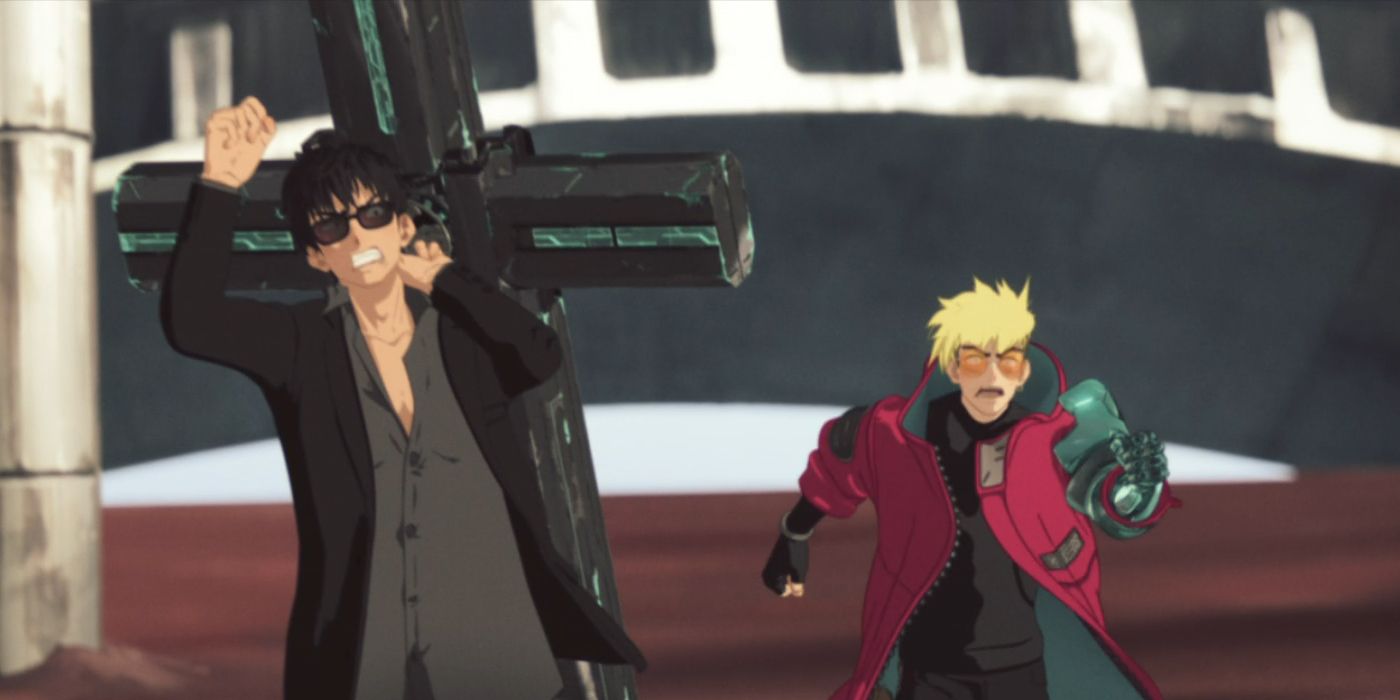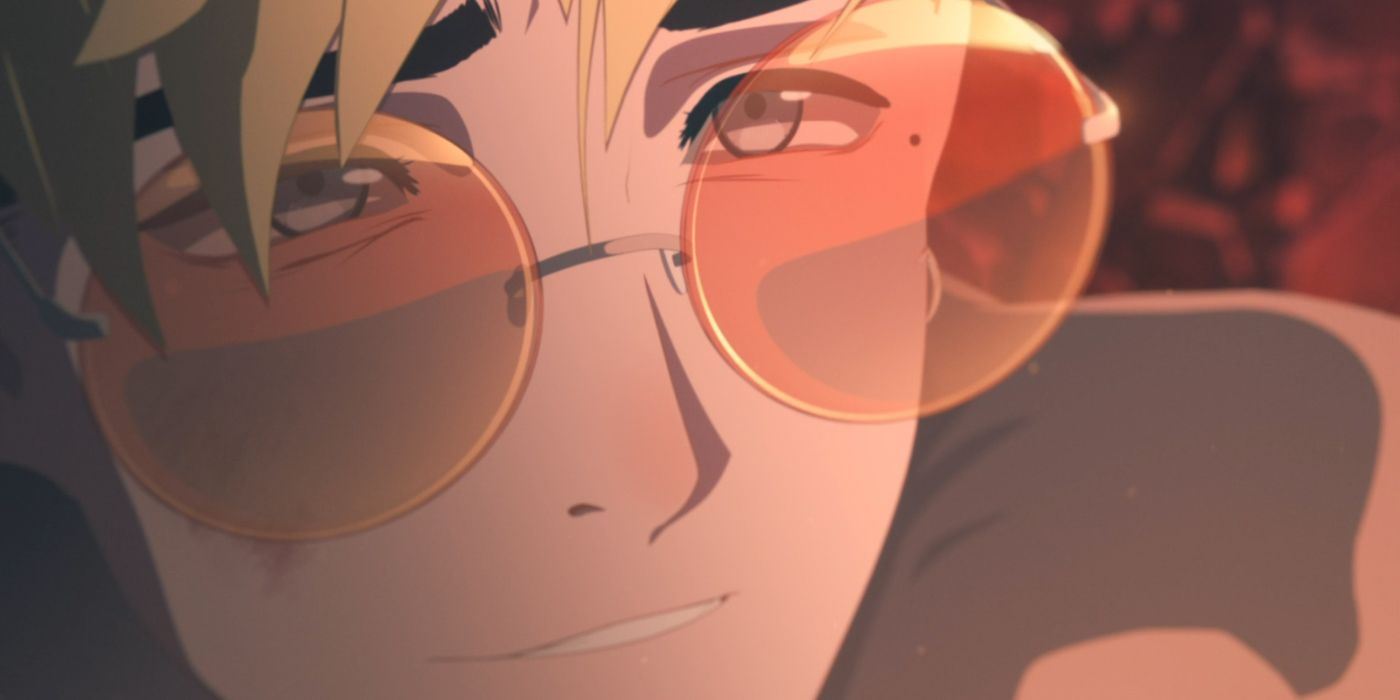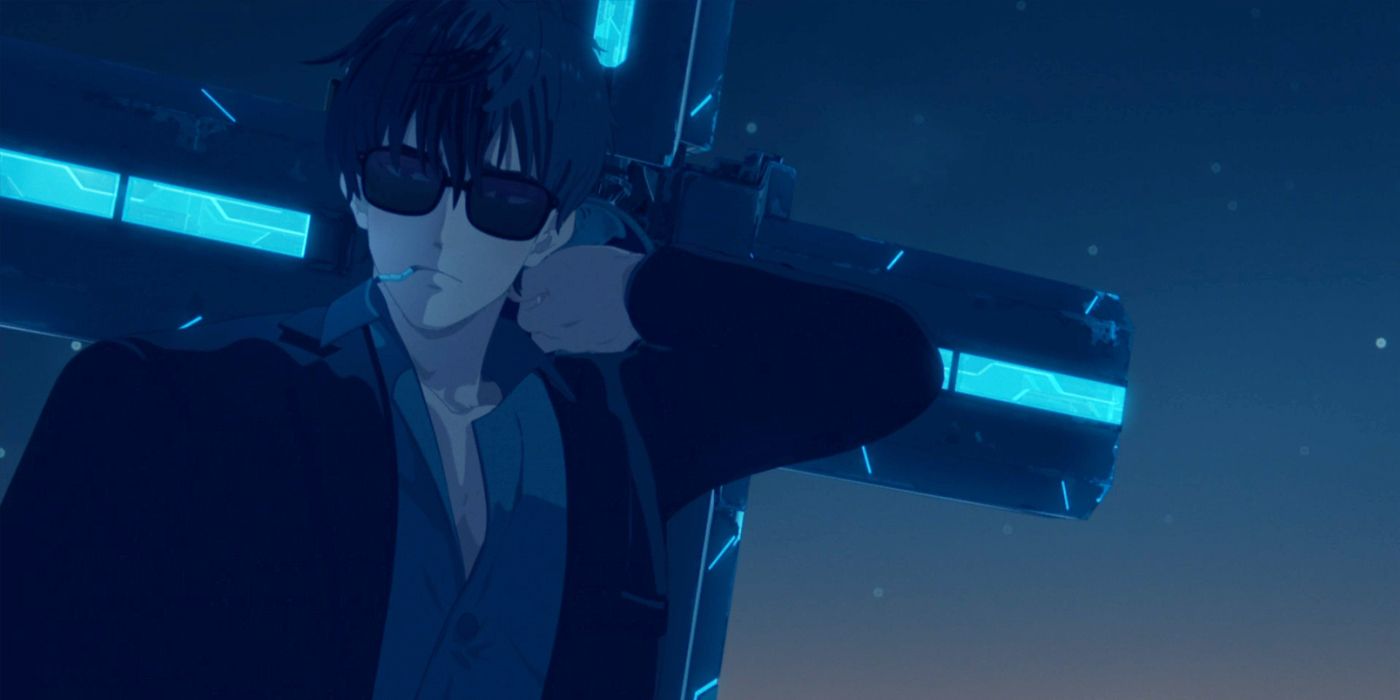Warning: Spoilers for Trigun Stampede, Episode 5Vash and Wolfwood of Trigun Stampede are each driven by a very different philosophy, and those two philosophies are in direct competition in the latest episode, drawing out a key theme of the series.
Much of episode 5 of Trigun Stampede is dedicated to a fight with a massive cyborg man--a cyborg that Vash knew as a baby. Upon discovering this fact, Vash is completely unable to act against him, desperately pleading for the boy that he once was to come back. Wolfwood, on the other hand, is able to realize that this cyborg is too far gone to come back from, and puts him down for good. This naturally leads to an argument between the two, which Wolfwood is able to put to an end by giving his reasoning: he did it out of mercy.
Vash's Idea of Mercy
Vash, as a protagonist, is defined by his unwillingness to kill. Even more so than other famed characters with "No Killing" clauses, Vash takes this seriously, even getting in between his allies and the enemy if they intend to kill. Vash has a love and respect for all living things, and simply can't bring himself to take a life, even in self-defense. What's often neglected in discussion of this aspect of Vash's character is his incredible endurance and healing ability; while the man's body may be covered in scars and injuries, he's still surviving attacks that would be fatal for any ordinary human. Being able to go to such lengths to avoid killing while not dying is only possible because of the superpowers that he possesses.
Vash recognizes the humanity of his enemies in Trigun, and as such won't kill them, always hoping for another option. He will perform other kinds of attacks, however, to disrupt, stop, or otherwise impede his enemies, but if there's even a chance they're hurt, he'll be trying to help them. This strikes other characters, like Wolfwood, as foolish; the enemy would be showing him no such kindness if the tables were turned, after all.
Wolfwood's Idea of Mercy
As a man carrying around a massive weapon, Wolfwood isn't afraid to kill. He will do what he must to survive, even if that means someone else won't. As the background of this cyborg attacker is slowly revealed, Wolfwood's decision doesn't change at all, but his reasoning does. This boy was tortured and experimented upon for years, something that Wolfwood is implied to relate to on some level. There's no going back to the boy he once was, and to let him continue existing in this state is an act of cruelty. Ending the kid's suffering is what's important, even if that means he has to have this death on his conscience. Wolfwood providing "mercy" as the reason for killing the cyborg is probably one of the few answers Vash might accept, since even self-defense or defense of others isn't a good enough reason in his book.
Vash and Wolfwood's differing philosophies form a core theme of Trigun Stampede: is it ever ethical to kill another, or is killing always an act of evil? Vash may have the ethical high ground, but it's a perspective detached from reality for most people. Knives' whole goal in Trigun Stampede, after all, is to put Vash in a situation where he must see this approach is wrong... and for once, the bad guy may have a point.
Trigun Stampede debuts new episodes on Saturdays, via Crunchyroll.



